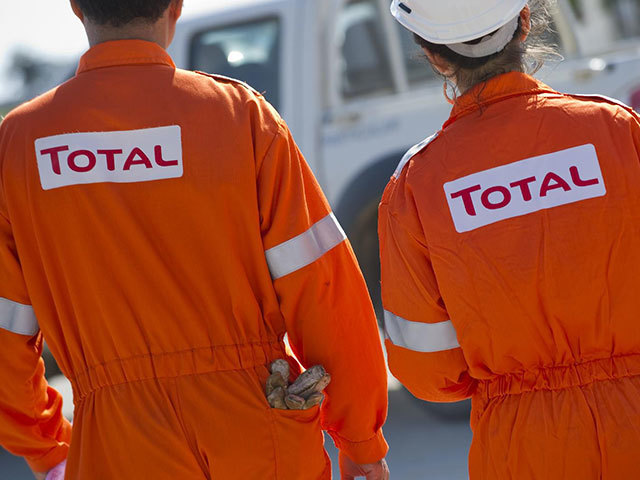
After taking a battering from the crash in crude prices, Europe’s oil and gas producers are gaining some relief from the relentless slide in the euro.
France’s Total, Italy’s En and Repsol of Spain will benefit most from earning revenue from oil and gas sales in US dollars, the industry’s dominant currency, while paying a large chunk of salaries, rent and other costs in euros, according to data compiled by Bloomberg Intelligence.
The positive impact of the euro’s slump will give the region’s oil companies an edge over rivals in the US as they grapple with a drop in prices from more than $100 a barrel in June to less than $60 today.
Investors are taking notice: an index tracking European energy companies is up by 7.7% this year, while a US equivalent has dropped 6.4%.
“Foreign exchange effect can be quite substantial for euro oil companies,” said Philipp Chladek, an analyst at Bloomberg Intelligence in London.
He added: “The euro’s 20% devaluation since Brent crude’s latest peak in June 2014 has softened the oil-price decrease for European oil producers.”
While benchmark crude prices dropped 50% last year in dollar terms, the slide was just 36% when priced in euros, according to Bloomberg Intelligence.
The effect of the euro’s slump can be seen in the relative share performance of European and US oil companies this year.
Eni has gained 13%, Repsol 7.7% and Total 7.5%, while ExxonMobil and Chevron – the largest US producers – are down 8.9% and 8.3% respectively.
The impact of currency movements can also be seen in the outlook for earnings.
Total’s adjusted net income is projected to fall 35% this quarter, according to estimates compiled by Bloomberg. Repsol is seen declining 25%.
Those numbers, while not great, are better than the 64% slump expected at Exxon and the 74% drop predicted at Chevron.
Repsol and Eni, as well as smaller rivals like Portugal’s Galp Energia and Austria’s OMV, will benefit because they report in euros, translating the weaker currency directly into their income statements.
While France’s Total will still gain from having a good proportion of costs in euros, it now reports results in dollars.
Jean-Pierre Dmirdjian, an analyst at Liberum Capital in London, said: “There’s a positive translation impact for European oil and gas producers reporting in euros, like Eni and Repsol.
“Most of these companies’ downstream activities are in Europe and there they benefit from the euro’s decline against the dollar.”
Even though the euro’s tumble versus the dollar has accelerated this week as the European Central Bank started its bond-buying programmer, the effect of the weaker currency was already felt in fourth-quarter results announced by oil and gas companies last month.
Lower oil “didn’t impact as badly as it could have”, given that the dollar was strong against the euro, OMV chief financial officer David Davies said during a call with investors on February 19.
The euro dropped as low as $1.056 today, the lowest since 2003, and is headed for a record quarterly decline.
The consequences of a weaker currency aren’t all positive. Oil companies tend to borrow heavily in dollars and that may force some to revalue their debts in euro terms.
Read more Europe news here.
Recommended for you
